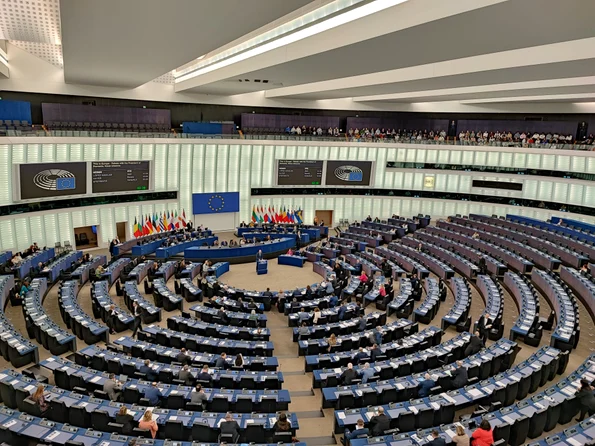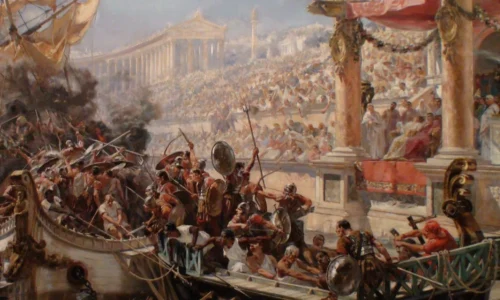
The Future of Democracy in Europe: A Model for the World?
As Europe navigates a complex political landscape marked by rising populism, technological transformation, and shifting global alliances, the resilience and adaptability of its democratic institutions are under scrutiny. This article examines the evolution of European democracy, the European Union's (EU) role in safeguarding democratic values, the impact of digitalization on political participation, and the potential of the EU's democratic model to inspire other regions.
1. The Evolution of European Democracy Amid Populism and Political Shifts
European democracy is undergoing significant changes, influenced by internal and external pressures. The rise of populist movements, such as Germany's Alternative for Germany (AfD), which secured 21% of the vote in recent federal elections, highlights a shift towards nationalist and anti-establishment sentiments . Similarly, Romania's annulled 2024 presidential election due to alleged foreign interference underscores vulnerabilities in democratic processes .Financial Times/ AP News
These developments challenge the EU's foundational values of democracy and the rule of law. The concept of the EU as a "militant democracy" has emerged, suggesting proactive measures to counter anti-democratic threats within member states . However, balancing such measures with respect for national sovereignty remains a contentious issue.Cambridge University Press
2. The EU’s Role in Defending Democracy Within and Outside Europe
The EU has positioned itself as a guardian of democratic values, both internally and globally. Initiatives like the European Democracy Action Plan aim to strengthen democratic resilience by combating disinformation and foreign interference . The Digital Services Act further enforces accountability among online platforms to prevent the spread of harmful content .The Commissioners+3European Commission+3EPD | European Partnership for Democracy+3
Externally, the EU's response to geopolitical challenges, such as the war in Ukraine, reflects its commitment to supporting democratic governance beyond its borders. European Commission President Ursula von der Leyen emphasized Europe's role in promoting democratic values amidst global instability .Latest news & breaking headlines
3. Digitalization and Democracy: How Technology Shapes Political Participation
Digital technologies have transformed political engagement in Europe. Tools like online voting, participatory budgeting, and e-government services have increased accessibility and citizen involvement . Countries like Estonia exemplify successful integration of digital platforms in governance.thediplomaticaffairs.com+1Digital Democracy Forum+1Digital Democracy Forum
However, the digital age also presents challenges. The proliferation of disinformation, algorithmic biases, and data privacy concerns threaten the integrity of democratic processes . The EU's efforts to address these issues include promoting digital literacy and implementing regulations to ensure transparency and accountability in online spaces .The Commissioners
4. Can the EU’s Democratic Model Inspire Other Regions?
The EU's approach to democracy, characterized by multilateralism, rule of law, and social welfare, offers a potential model for other regions. In contrast to the United States, where political polarization and institutional challenges have raised concerns, Europe's emphasis on collective governance and citizen rights presents an alternative framework .
Nevertheless, the EU must address its internal disparities and ensure that its democratic model remains inclusive and adaptable. By reinforcing its commitment to democratic principles and effectively managing technological and political changes, the EU can strengthen its position as a global exemplar of democratic governance.
Conclusion
Europe stands at a crossroads, facing the dual challenges of internal political shifts and external pressures. By proactively addressing populism, safeguarding democratic institutions, embracing digital innovation responsibly, and promoting its democratic values globally, the EU has the potential to not only fortify its own democratic structures but also serve as a beacon for democratic development worldwide.
References
- "Can Alternative for Germany be stopped?" Financial Times. Financial Times
- "Romania's presidential election redo is a high-stakes test of its democracy following annulled vote." AP News. AP News+1Le Monde.fr+1
- "Is the European Union a militant democracy? Democratic backsliding and EU disintegration." Cambridge Core. Cambridge University Press
- "Protecting democracy." European Commission. The Commissioners+2European Commission+2European Commission+2
- "Digital Democracy." European Partnership for Democracy. EPD | European Partnership for Democracy
- "Democracy Technologies in Europe – Online Participation, Deliberation and Voting." Democracy Technologies. Democracy Technologies
- "Technology and Democracy: understanding the influence of online technologies on political behaviour and decision-making." Knowledge for Policy. Knowledge for Policy
- "The West as we knew it is dead, warns Ursula von der Leyen." The Times. Latest news & breaking headlines















